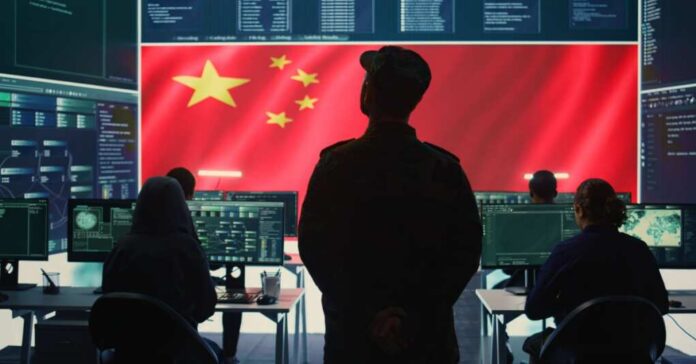
Senator Eric Schmitt (R-MO) is fed up with all the wishy-washy talk about China. So, he’s returning to a tried-and-true strategy from the Cold War era, suggesting Congress handle Beijing just like it did the Soviet Union: with hard facts and public hearings. Schmitt wants Congress’s Joint Economic Committee to dig into China’s economic dealings and put everything out in the open, much like they did with the Soviets before their collapse.
Schmitt, a member of this committee, fired off a letter to Sen. Martin Heinrich (D-NM), the chairman, and Rep. David Schweikert (R-AZ), the vice chairman, pushing them to start producing annual, unclassified reports on China’s economy. He pointed out that the U.S.-China Economic and Security Review Commission has also suggested using open-source data and intelligence to analyze China’s economy. Schmitt’s thinking is pretty clear: it’s time to expose what he sees as China’s shady economic practices to the world.
He didn’t hold back in his letter, saying that China has been up to no good with its currency manipulation, dishonest trade practices, and outright theft of intellectual property. Schmitt believes these moves have seriously hurt American workers and businesses. He wants Congress to start asking tough questions about how these practices affect the U.S. economy.
Of course, not everyone is ready to jump on board when it comes to big ideas like this. The committee didn’t respond to Schmitt’s letter, maybe hoping this idea would quietly fade away. But Schmitt isn’t backing down. He says that just like we did during the Cold War, Congress should hold public hearings, bringing in experts to testify on three key areas: why people are leaving China, how China’s manipulated markets are holding up, and its volatile housing market.
Schmitt’s push comes as lawmakers increasingly view China as America’s biggest economic threat. Just last year, the House, led by the GOP, launched a committee to focus on the growing competition between the U.S. and the Chinese Communist Party. Schmitt, however, thinks it’s time for more than just backroom discussions. He’s calling for an all-out public effort to tackle China’s economic behavior head-on.
And Schmitt has never been one to shy away from taking a stand on China. Back in 2020, as Missouri’s attorney general, he sued China over its handling of the COVID-19 pandemic, claiming they misled the world about the virus’s origins. That didn’t make him any friends in Beijing, but it did put him on the map as someone willing to confront China directly. During his 2022 Senate race, he focused heavily on the threats posed by China, emphasizing economic, military, and public health concerns.
Schmitt believes that the Joint Economic Committee has a big role to play in shaping the government’s strategy to counter China’s economic aggression. He argues for public hearings and regular reports that make it clear what China is up to. In his view, it’s not just about learning what the Chinese Communist Party is doing, it’s about letting everyone see it. Schmitt wants the American people to be fully aware of how China’s actions impact their daily lives.
Meanwhile, the Biden administration seems to be taking a different approach. Jake Sullivan, the White House national security adviser, recently traveled to China, becoming the first person in his role to do so since 2016. While Schmitt is calling for transparency and scrutiny, the White House appears more interested in playing nice with Beijing.
But Schmitt isn’t buying it. He’s pushing for a stricter stance, one that involves clear, public scrutiny of China’s economic games. He sees the Joint Economic Committee as key to this effort. His goal is to ensure that everyone, like lawmakers and citizens alike, gets a clear picture of what China’s economic strategy means for America.
Whether Schmitt’s approach will catch on is another question. But one thing is certain: he’s not backing down. If he gets his way, Congress will soon be taking a much harder look at China’s economic moves. And maybe, just maybe, we’ll stop letting Beijing get away with so much.














